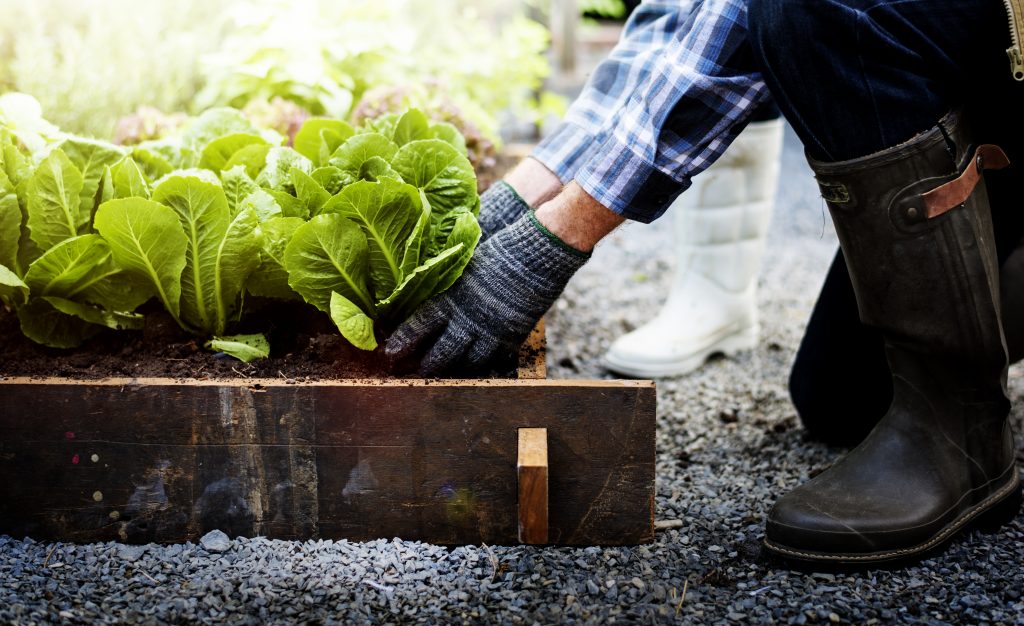It’s easy for us to look at someone who is financially savvy and say to ourselves “well they are just good at budgeting” or “they have a higher income so it’s easier for them” or even “they just have more self control than I’ll ever have”. While there may be half truths to some of these statements, they are not representing the full picture of someone who consistently practices a financially responsible lifestyle.
The analogy of a garden comes to mind.
We all have that one friend who is excellent at gardening. Maybe you yourself have a gift in that area. And if you do, or you know someone who does, you know that it takes an incredible amount of time and effort to plan, design, execute, dig up, plant, and harvest a beautiful garden.
Let’s use this picture in our minds to motivate ourselves to plant and cultivate our own financial garden. Living below your means does not happen overnight. Having a solid financial plan for your future does not happen over night. Even developing self control in your spending does not happen overnight. It is a process over many days, weeks and years making small decisions that will ultimately lead you to a greater gain in your personal financial wellbeing.

“Now the Lord God had planted a garden in the east, in Eden; and there he put the man he had formed.” Genesis 2:8
Have you ever thought about the fact that God planted the first garden? He must have put a lot of thought into the design and character of that garden knowing that Adam and Eve, the firstborn of His creation, would be living there and enjoying it with Him.
Just as God is a detailed planner and thoughtful gardener to our world and our souls, let’s be thoughtful in the way we handle the money He has given to us.
Let’s walk through 3 different points to give us a better understanding of what it means to cultivate our own financial garden:
- Know When to Pull the Weeds
Part of creating space for a beautiful garden starts with pulling out any weeds, any dead plants, or anything that is hindering the good soil you need to keep your garden alive and well. In the same vein, we have plenty of “weeds” in our budgets, aka things that we spend our money on that profits us little or is excessive in nature. In order to identify these weeds it’s important that we look at our finances as a whole. Taking the time to sit down and write out or type out all of our spending categories is an essential first step to creating a well-balanced budget. Once we identify any excessive spending or places that need work, we can begin to cut back in those areas. It isn’t until you are aware of them that you can begin to make change. So pull out those weeds!
2. Plan the Design of Your Garden
We must be thoughtful in how and where we chose to spend our money. Are we putting too much of our money into one category? Let’s plan to shift to put some of that money into that category, and some of our money into something else. As we work to achieve balance in our budgets it is our job to create a design of what we want our future to look like. Does your future design include a trip once a year? You will need to plan to save for that. Or maybe you would like to have more money given to a ministry or cause you are passionate about. Work to set that aside, work to bring that to fruition. Just like designing and planting a garden, this will take thoughtful, honest, hard work. As you look at each spending category, your main focus should be on what you want the future of your finances to ultimately look like.
3. Put Some Love and Care Into It
Just as you would care for a garden of flowers and shrubs, put care into maintaining and developing a workable spending and saving plan. If there is an area that needs a little more water, be faithful to water it every day. If you need to move one of your plants to a sunnier place, take the time to move it. In the same way if you have areas of your budget that are not working, or need just a little extra care, give them that attention. If you are someone that struggles with spending too much at the grocery store, take the time to sit down and write out a list and a budget for that day of shopping. Decide ahead of time what you want to spend and resist the urge to go to the store on a whim. Analyze what your weak points might be and prepare ahead of time to give greater attention, detail, and care to those very areas.
The important part of cultivating your financial garden is not how good you are to begin with. You will fall and struggle and have spending mishaps just like the rest of us. But that does not define your financial journey. Similar to our walk with Jesus, we are constantly falling and getting back up only to have Him hold us a little closer. So remember that if you fall, if you have to try again, it is not the end of this journey for you. Keep cultivating that beautiful garden and one day you will walk outside and see the most magnificent sight before your eyes.

